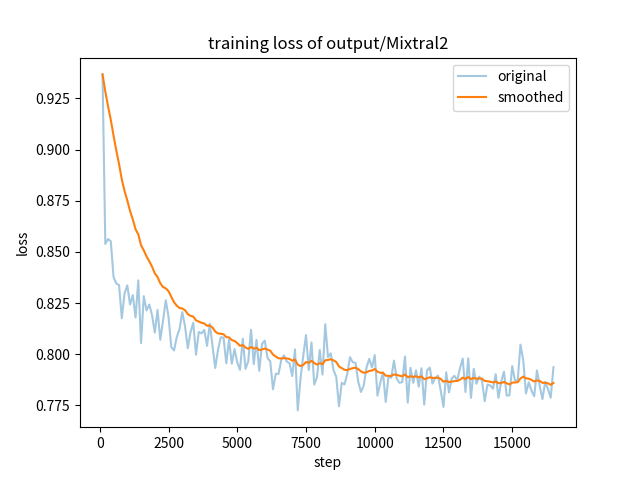---
license: apache-2.0
datasets:
- shareAI/ShareGPT-Chinese-English-90k
language:
- zh
- en
pipeline_tag: text-generation
---

Aurora: Activating chinese chat capability for Mistral-8x7B sparse Mixture-of-Experts through Instruction-Tuning
1.
2.
## Overview
Existing research has demonstrated that refining large language models (LLMs) through the utilization of machine-generated instruction-following data empowers these models to exhibit impressive zero-shot capabilities for novel tasks, without requiring human-authored instructions. In this paper, we systematically investigate, preprocess, and integrate three Chinese instruction-following datasets with the aim of enhancing the Chinese conversational capabilities of Mixtral-8x7B sparse Mixture-of-Experts model. Through instruction fine-tuning on this carefully processed dataset, we successfully construct the Mixtral-8x7B sparse Mixture-of-Experts model named "Aurora." To assess the performance of Aurora, we utilize three widely recognized benchmark tests: C-Eval, MMLU, and CMMLU. Empirical studies validate the effectiveness of instruction fine-tuning applied to Mixtral-8x7B sparse Mixture-of-Experts model. This work is pioneering in the execution of instruction fine-tuning on a sparse expert-mixed model, marking a significant breakthrough in enhancing the capabilities of this model architecture.

## Usage
```python
import gradio as gr
import torch
from transformers import AutoModelForCausalLM, AutoTokenizer, StoppingCriteria, StoppingCriteriaList, TextIteratorStreamer
from threading import Thread
from peft import PeftModel
import time
model_name_or_path = "mistralai/Mixtral-8x7B-Instruct-v0.1" # download weights from https://huggingface.co/mistralai/Mixtral-8x7B-Instruct-v0.1
lora_weights = "wangrongsheng/Aurora" # download weights from https://huggingface.co/wangrongsheng/Aurora
tokenizer = AutoTokenizer.from_pretrained(model_name_or_path)
model0 = AutoModelForCausalLM.from_pretrained(model_name_or_path, load_in_4bit=True, device_map="auto", torch_dtype=torch.bfloat16)
model = PeftModel.from_pretrained(
model0,
lora_weights,
)
class StopOnTokens(StoppingCriteria):
def __call__(self, input_ids: torch.LongTensor, scores: torch.FloatTensor, **kwargs) -> bool:
stop_ids = [0,]
for stop_id in stop_ids:
if input_ids[0][-1] == stop_id:
return True
return False
def convert_history_to_text(history):
text = ""
if len(history) > 1:
text = " " + "".join(
[
"".join(
[
f"[INST]{item[0]}[/INST] {item[1]} ",
]
)
for item in history[:-1]
]
) + " "
text += "".join(
[
"".join(
[
f"[INST]{history[-1][0]}[/INST]",
]
)
]
)
return text
def predict(message, history):
history_transformer_format = history + [[message, ""]]
stop = StopOnTokens()
messages = convert_history_to_text(history_transformer_format)
model_inputs = tokenizer([messages], return_tensors="pt").to("cuda")
streamer = TextIteratorStreamer(tokenizer, timeout=10., skip_prompt=True, skip_special_tokens=True)
generate_kwargs = dict(
model_inputs,
streamer=streamer,
max_new_tokens=4096,
do_sample=True,
top_p=0.95,
top_k=1000,
temperature=1.0,
num_beams=1,
pad_token_id=tokenizer.eos_token_id,
stopping_criteria=StoppingCriteriaList([stop])
)
t = Thread(target=model.generate, kwargs=generate_kwargs)
t.start()
partial_message = ""
t1 = time.time()
count = 0
for new_token in streamer:
if new_token != '<':
partial_message += new_token
count += 1
yield partial_message
t2 = time.time()
speed = count/(t2-t1)
print("inference speed: %f tok/s" % speed)
gr.ChatInterface(predict,chatbot=gr.Chatbot(height=600,),title="MoE").queue().launch()
```
## Citation
If you find our work helpful, feel free to give us a cite.
```latex
@misc{wang2023auroraactivating,
title={Aurora:Activating Chinese chat capability for Mixtral-8x7B sparse Mixture-of-Experts through Instruction-Tuning},
author={Rongsheng Wang and Haoming Chen and Ruizhe Zhou and Yaofei Duan and Kunyan Cai and Han Ma and Jiaxi Cui and Jian Li and Patrick Cheong-Iao Pang and Yapeng Wang and Tao Tan},
year={2023},
eprint={2312.14557},
archivePrefix={arXiv},
primaryClass={cs.CL}
}
```